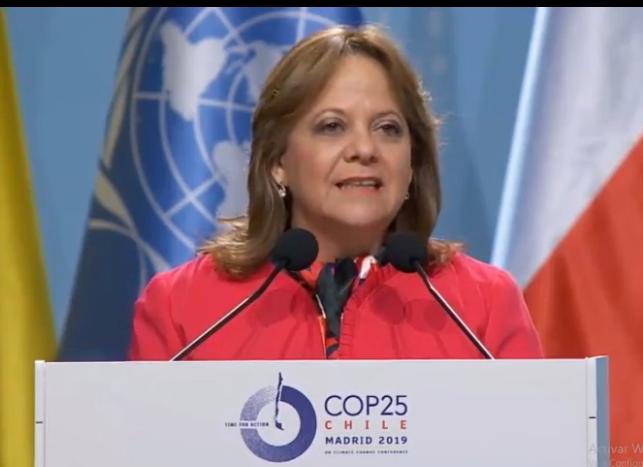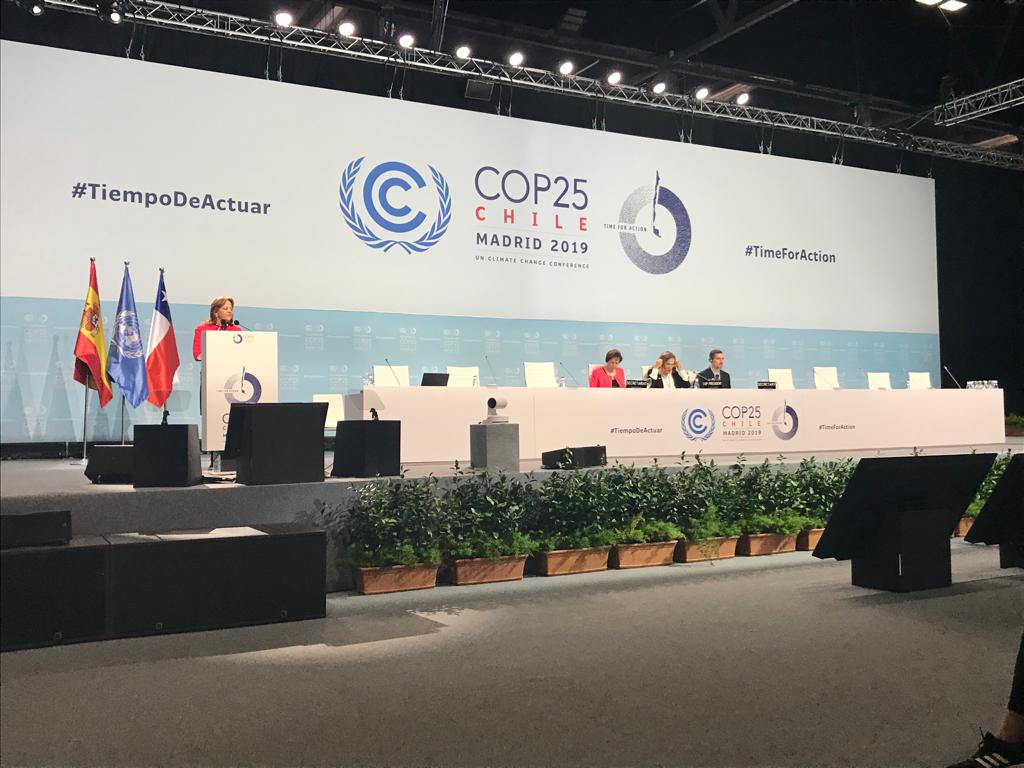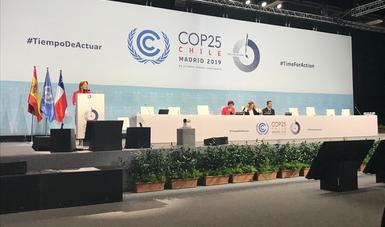The Undersecretary for Multilateral Affairs and Human Rights, Martha Delgado, representative of the Mexican delegation at the 25th Conference of the Parties (COP25) to the UN Framework Convention on Climate Change (UNFCCC), presented Mexico's national statement today, reaffirming the country's commitment to combating climate change, guided by the best available science.
The undersecretary confirmed that Mexico had presented its sixth National Communication. She also said that the country's Special Climate Change Program 2020-2024 is being drafted with a multisectoral approach and the participation of all of the ministries responsible for climate issues. The national program will be the basis for Mexico's updated nationally determined contribution and national adaptation plan (NAP).
Undersecretary Delgado commented that Mexico is taking new steps of mitigation and adaptation as part of the General Law on Climate Change. These include the launch of the National Emissions Trading System, whose pilot phase will begin in 2020.
She also explained that Mexico is guided by two main ideas: the first is the conviction that the most efficient, cost-effective and socially inclusive way to reduce the impacts of climate change and inspire ambitious climate action is by developing nature-based solutions; the second is the concept of a just transition. Mexico is aware that ambition must be the common denominator of all climate action measures; but we must prioritize the adoption of measures that ensure the well-being of all, of present and future generations.
Undersecretary Delgado presented the Mexican initiative to incorporate environmental education into the country's legislation, and invited other countries to do the same. UNFCCC Executive Secretary Patricia Espinosa welcomed the announcement. In addition, there were meetings and activities on including human rights and gender equality in climate action.
During the first week of COP25, the Mexican delegation played an active role in various forums and events. Officials from the Ministries of Environment, Foreign Affairs, the Navy, and Agriculture and Rural Development; the National Institute of Ecology and Climate Change (INECC) and the National Institute of Indigenous Peoples participated in the plenary meetings and specialized groups of the Convention, the Kyoto Protocol, the Paris Agreement and the subsidiary technical and scientific advisories, and implementation.
Mexico also attended bilateral meetings with Costa Rica, Germany, Spain, China, Italy and Switzerland and members of the European Parliament, in addition to representatives of local governments, civil society and international organizations, to discuss experiences and the national climate change policy. There were also consultations with the COP presidency and secretariat.
The Mexican delegation has played an active role in the negotiations, including Article 6 on market mechanisms and the Warsaw International Mechanism for Loss and Damage, as well as on issues of adaptation, financing and transparency.
In line with its feminist foreign policy, Mexico participated in the review of the Lima Work Program on Gender and the adoption of a new Action Plan. It promoted its priorities of human rights, gender equality, intersectionality, a just transition of the workforce - with a focus on decent work for women - and the strengthening of mentions of indigenous women and girls. Likewise, following the recent Constitutional changes in education that now require an environmental curriculum, Mexico has sought to promote environmental education and the adoption of similar policies globally.


